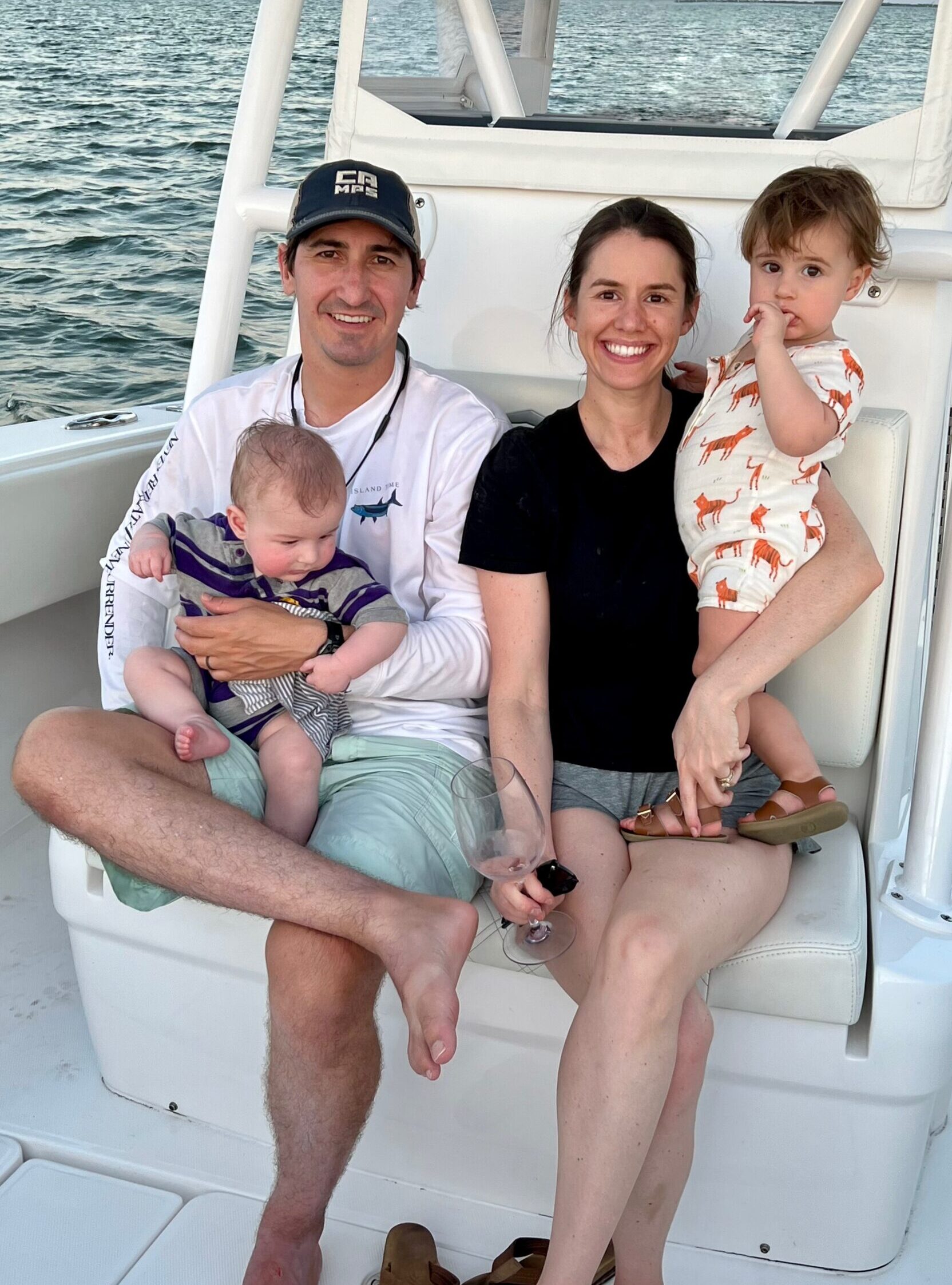 Lung cancer is the leading cause of cancer-related deaths in women in the United States, taking 162 women’s lives every day. That’s approximately as many lives as breast, ovarian, and cervical cancers combined.
Lung cancer is the leading cause of cancer-related deaths in women in the United States, taking 162 women’s lives every day. That’s approximately as many lives as breast, ovarian, and cervical cancers combined.
Caroline Blanchard was just 30 years old and pregnant with her second child when she found out she had the EGFR T790M pathogenic germline mutation that can cause lung cancer. After her maternal aunt passed away from lung cancer at 47, her maternal grandmother was diagnosed with lung cancer and underwent genetic testing and was found to have the mutation. This prompted further germline testing in her family which then led to her mother’s diagnosis of lung cancer, thankfully at an early stage. Caroline tested positive for the mutation after that.
Shortly after giving birth to her son, Caroline had her first CAT scan, revealing innumerable nodules in both lungs. After seeking multiple opinions, she had video-assisted thoracic surgery with multiple wedge resections and lymph node dissection by the same surgeon who treated her mother. Because Caroline’s mother had the same surgery earlier that year, Caroline knew what to expect from the experience and was able to rely on her mother for support.
Even though Caroline is young and very healthy, she experienced unexpected complications from the surgery, including a persistent air leak which required a chest tube for two months, two additional surgeries, and a month’s stay in the hospital. Fortunately, she recovered and is now back to her normal routine of being an active mom!
Thinking about the family’s history of lung cancer, Caroline says, “I am forever grateful and often think about how my aunt’s and grandmother’s diagnoses led to early detection of my mom’s and my cancer and potentially saved our lives.”
Although Caroline still has multiple nodules on both lungs which will likely require more treatment in the future, for now she is undergoing surveillance imaging and enjoying life in New Orleans with her husband and two children.
Caroline shares advice for other young mothers facing a lung cancer diagnosis. “You are not alone,” she says. “It is okay to ask for help and you should absolutely let people help you. Don’t be afraid to give someone a duty, whether it be bringing over a meal, running an errand, or helping with your children! I’ve learned people find great satisfaction in helping.”
She also shares the following message for other families facing multi-generational lung cancer: “Early detection is key. Formal genetic counseling is essential to best understand your risk of lung cancer and ensure proper screening. Lung cancer diagnosed at earlier stages significantly improves your prognosis.”
If you have a family history of lung cancer, you may be able to help us discover the origins of inherited lung cancer. Learn more about the new INHERIT study.

[…] post One Mother’s Story appeared first on GO2 for Lung […]
Thank you for sharing your story Caroline. I was also diagnosed at age 30 with stage 3 lung cancer with EGFR mutation. It’s so important for people to hear our stories. Increasingly it’s the young non-smokers like us getting this disease and seeing our stories shows that anyone can get this disease. Today I’m 42, a father of 2 boys, and a published author. There’s still so much life for us to live and there’s always hope.
This has been very helpful as I am having two patients with cancer in the family